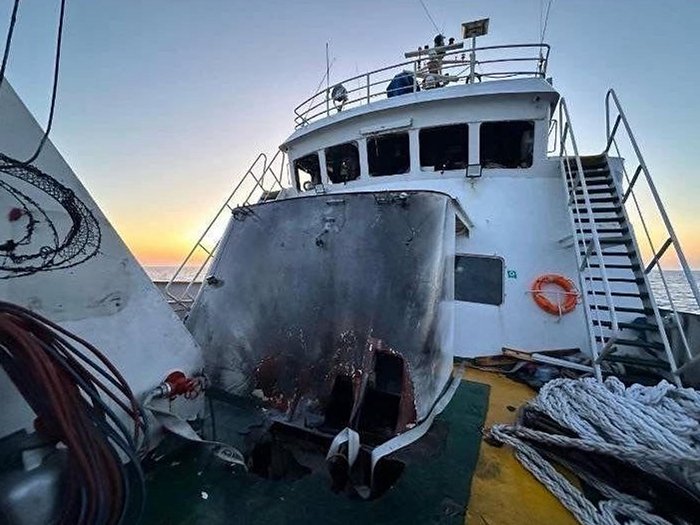02 MAY 2025

The Freedom Flotilla vessel Conscience — a civilian, unarmed, humanitarian ship —entered Maltese territorial waters in distress, after surviving a targeted Israeli drone strike in international waters. The attack, which occurred off Malta’s coast, constitutes an unlawful use of force and a violation of international law.
Damaged and vulnerable, with 30 passengers still aboard, the vessel has requested temporary safe harbor to carry out urgent repairs and prevent further harm to its unarmed crew and passengers. Maltese authorities have refused and are, instead, attempting to push the vessel back into open waters, to face another possible Israeli attack while damaged—a refusal that is a grave breach of Malta’s binding obligations under international law and the Law of the Sea.
We hereby submit this Communique to the Government of Malta as Formal Notice and Demand to Provide Safe Harbor as per its non-discretionary legal obligations. We further call on all States, Government Officials, and Civil Society to contact Malta government agencies and demand that: Malta provide safe harbor to the vessel until it can be securely repaired or towed.
Malta is bound under international law to grant safe habor
Malta has no lawful basis to deny safe harbor to the Conscience. Doing so would constitute a clear— and legally actionable— breach of international maritime, humanitarian, and human rights law.
Under Article 98 of the United Nations Convention on the Law of the Sea (UNCLOS), all States are under a binding obligation to “render assistance to any person or ship in danger or distress at sea, without delay”. This duty is non-discretionary and applies in both treaty and customary law. The Conscience is unequivocally in distress, having been bombed in international waters and now seeking refuge from further harm. Entry into Malta’s territorial waters is lawful under Article 18(2) of UNCLOS, which expressly permits passage when necessitated by distress.
Once within these waters, Article 24 prohibits coastal States from obstructing innocent passage, including through forced expulsion or denial of emergency refuge. Malta’s obligations are further reinforced by Common Article 1 of the Geneva Conventions, which requires all States to respect and ensure respect for international humanitarian law — particularly where humanitarian missions are under threat. The Conscience, as a documented civilian aid vessel, falls squarely within this scope. Forcing the ship back into open waters, where a second strike is feared, would also breach the principle of non-refoulement, which prohibits returning persons to a real risk of serious harm. Though most commonly applied to asylum seekers, this principle—reflected in Article 6 of the International Covenant on Civil and Political Rights (ICCPR) and customary law applies by analogy to civilians in situations of foreseeable lethal danger. Finally, under the law of State responsibility, Malta’s refusal—if followed by a renewed attack—would render it complicit in the consequences through omission and foreseeable facilitation of harm. Such an act would violate UNCLOS Articles 18, 24, and 98, breach obligations under the Geneva Conventions, and risk accessorial liability in international crimes, including obstruction of humanitarian aid and attacks on civilians.
To All Governments, Diplomats, and UN Agencies:
We call on all States, Diplomats, Government Officials, Party Representatives, Regional Unions, UN Agencies, the UNSG, and international institutions to immediately:
To Global Civil Society:
We urge all civil society organizations, labor unions, legal networks, student groups, journalists, and human rights defenders to: